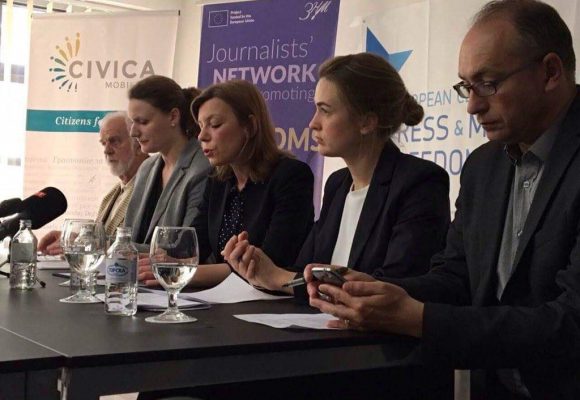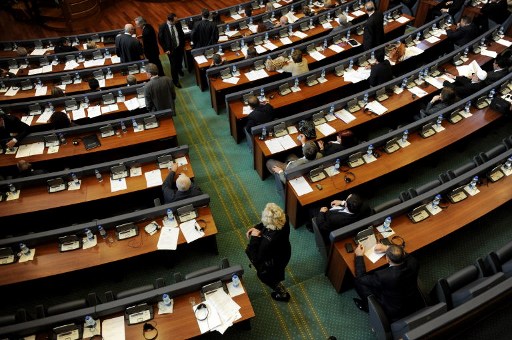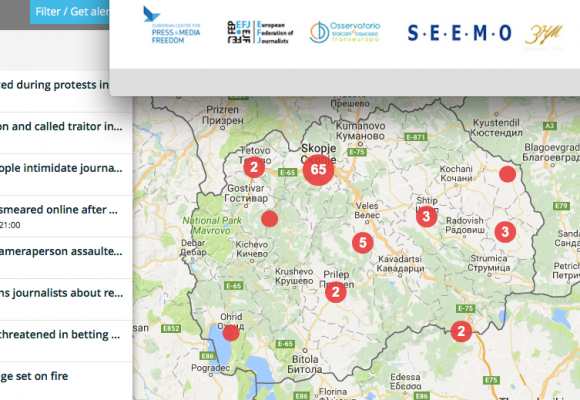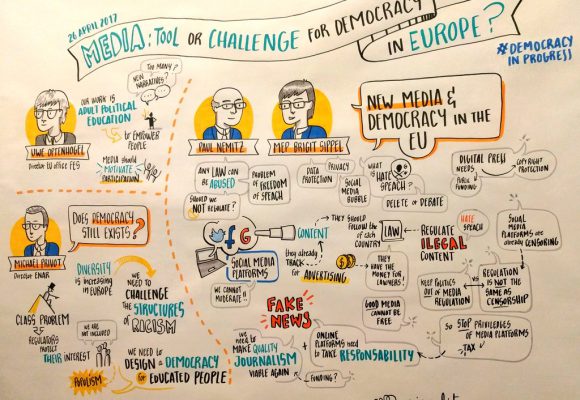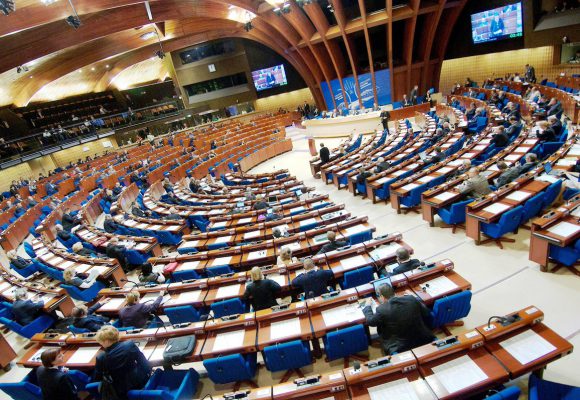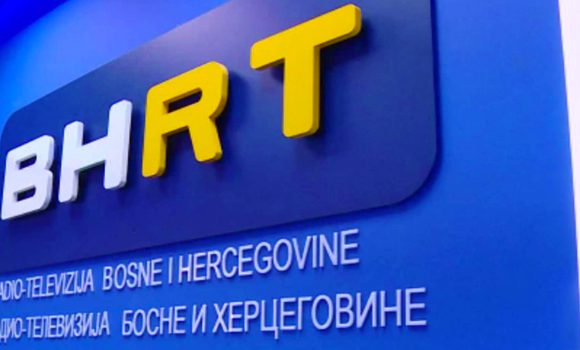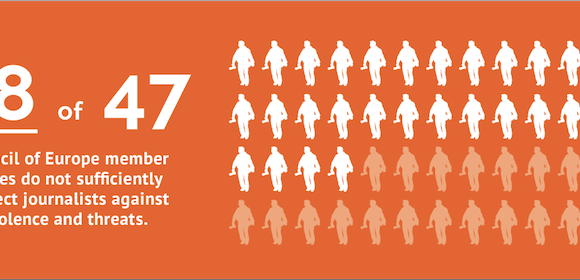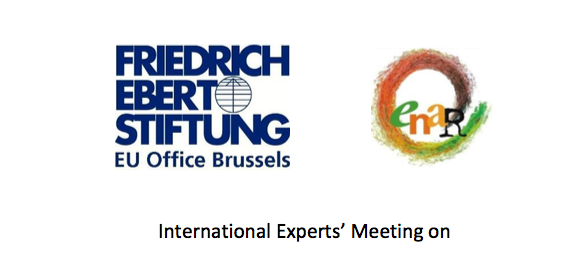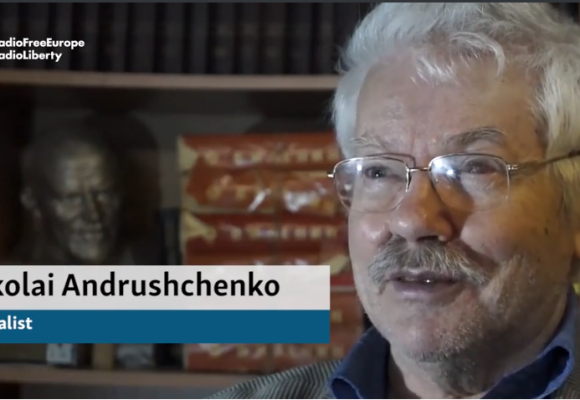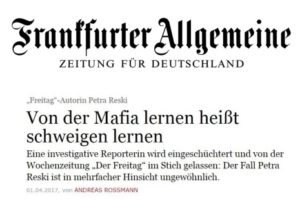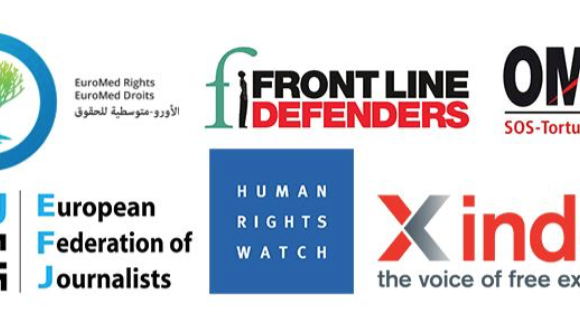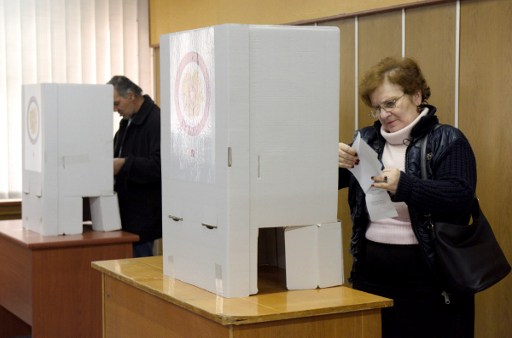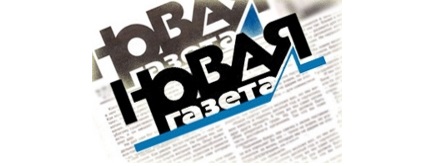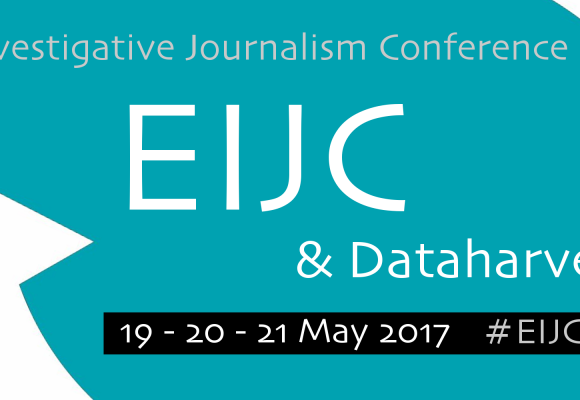Macedonia: two journalists injured during storming of the Parliament
During a press conference today in Skopje (Macedonia), the European Centre for Press and Media Freedom (ECPMF), the European Federation of Journalists (EFJ), South East Europe Media Organisation (SEEMO) and Osservatorio Balcani e Caucaso Transeuropa (OBCT) called on the Macedonian authorities to investigate the attacks against 10 journalists and media workers, during last night’s storming of the Macedonian parliament building by nationalist demonstrators. At least two journalists were injured in the attack, according to reports from the Association of Journalists of Macedonia (ZNM). Dimitar Tanurov, a reporter for the independent online news agency Meta, was taking pictures inside the parliament. He…

